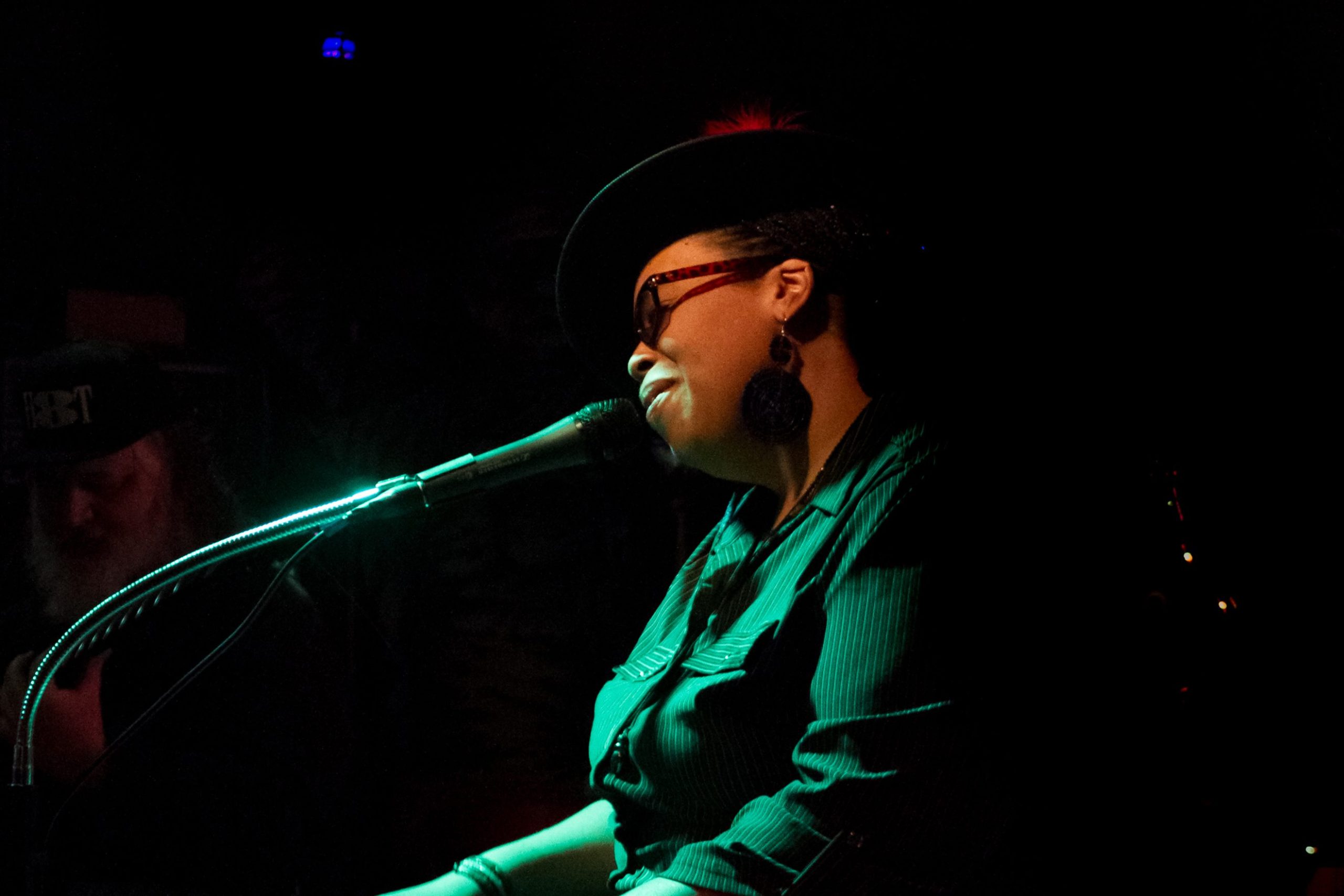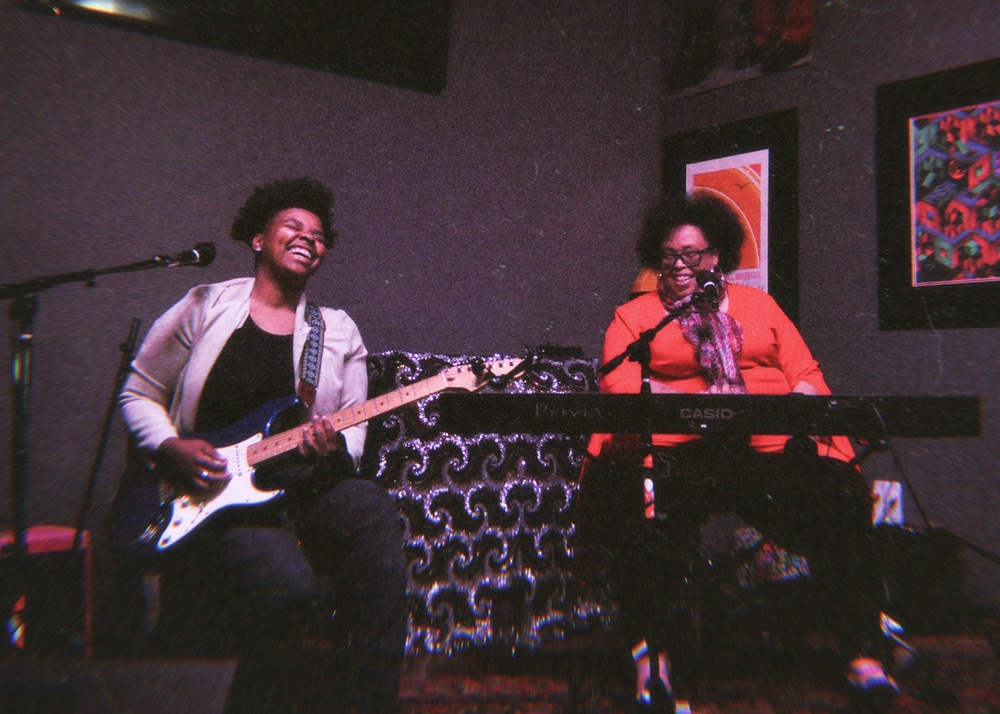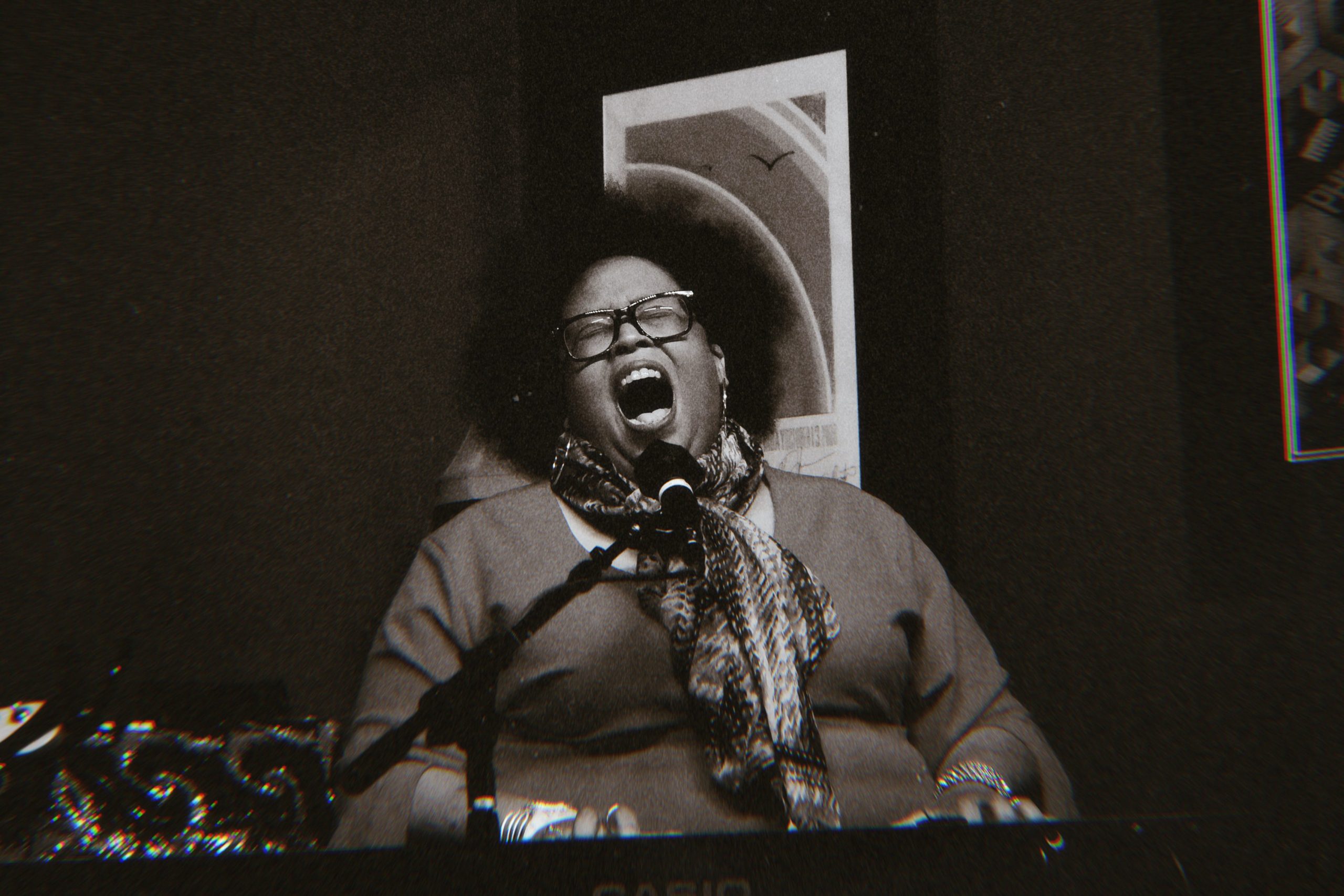Singing Through The Cracks

by Lilli Lewis
In my brief tenure as a classical singer, I learned a few life-altering facts: 1. That hiding could not save me. 2. That “pretty” is not at all synonymous with “compelling” 3. That when faced with vocal challenges, it is better for the instrument if one applies less effort and more energy.
This last one was a slippery point, counterintuitive at best, largely because it’s so easy to mistake effort for energy. Challenges trigger the body to respond in all kinds of sympathetic ways, a tightened thigh, a locked jaw, a thud of a tongue, all leading to more strain on some of the body’s most vulnerable parts, namely those found in a phonating voice box. The fact is that the antidote for all of this is to relax everything, “Tank up!” and then energize the sacred, life-giving breath you’ve taken into your body with all that you are made of and more. Suddenly, that far-reaching note becomes possible, and that never-ending phrase spins elegantly onward into the ether from whence it came.
What people who have not worked with the voice on a painfully awkward level of intimacy do not know is this: singers, no matter how naturally talented they may be, are in a lifelong battle with something those of the bel canto school refer to as the passaggio – the “bridge” in the instrument that shifts them from one part of their vocal range to another. These bridges are awkward little buggers, anomalous and wonky. In lower and mid registers, there can be a “hole” in the voice where clarity has a tendency to “fuzz out.” In upper registers, one often encounters a “crack,” god forbid, especially when the toes tend to tighten, and the larynx tends to reach up into the throat to assist in grabbing for the elusive note that feels more fragile, more tender without its help. Sadly, no toe-tightening or larynx-lifting can help the voice cross over. In all of these cases, what is needed is unconditional surrender and the integrity of the breath.
For a person like me, unconditional surrender feels like a trick, a set-up, an invitation to be had. For starters, this kind of surrender requires trust. I’ve watched people navigate the world with this type of trust being taken for granted. It’s the type of trust cis-gendered white men of the “New World” have become the ultimate symbol for wielding like a weapon, but indeed, from my point of view, all of us humans wield our advantages like a weapon against those who do not hold the same. We compete with those we think are as strong, attractive, charismatic, wealthy, able-bodied, or accomplished as we are, rendering invisible those who fall outside of these delineations I view as faultlines. If they are not our competition, their stories, their work, their personhood becomes irrelevant.

I am a person living in and working from the cracks with a number of faultlines.
For starters, I am Black and I am a woman. Being born with those two labels in the United States is my greatest honor, even though in the time in which we find ourselves, it leaves me vulnerable to sometimes life-threatening systemic oversights, and statistically speaking, set-up to earn $.63 to the dollar of my white male counterparts. In addition to that, I was born in the deep South, a region whose white supremacist roots are still overtly expressed with an impressive display of both vitriol and nonchalance. Of course, our Northeastern and West Coast counterparts find it appropriate to take on comparable disinterest in racial equity or justice while questioning and/or mocking Southern competence and intelligence at every turn.
I also was born a queer woman. As a Black child, I feared the KKK in my community. As a queer person coming of age, KKK-level intolerance and bigotry seemed to be all around me. Lest we forget, there were beatings and murders and suicides. There were jobs lost, friends lost, families lost. There were plagues unchecked because the lives of those most susceptible (namely gay men and later black women) were so insignificant, that to suggest that they mattered was nothing short of repulsive to the collective psyche. As a woman in the music industry, I found that my work proved to have less value because it did not feign to appeal to the toxic ooze of the rape-culture-drenched male gaze. Truth be told, we had no rights to work, to homes, to intimacy, to the protected dignity of our partners, and even among progressive friends and “allies,” the thought of achieving these rights in my lifetime seemed regrettably far-fetched.
I also grew up what most people would call poor. When my mother left my father’s home with three small children in tow, there was constant struggle over how long we’d be able to live at each location before we got kicked out, how we would pay for utilities, how many meals we could make out of each dollar, etc. Though largely absent, my mother was remarkable enough to make sure I saw a symphony orchestra perform before I was out of grade school having noticed my obsession with music. She found us all fancy schools to attend when we reached the age where scholarships to attend such schools were accessible, so I became a poor kid in an elite environment, receiving an elite education while still managing to serve in the way poor people have always served the monied.
These are the states to which I was born–the soup I was swimming in–, but while all of these faultlines were nestling into one another, I was becoming a trauma kid. I was raped for the first time at age three, and lived in an environment of physical and emotional abuse with my parents due to their own generational trauma. We trauma kids tend to develop internal cracks long before we have the language or wherewithal to articulate any of it. I buried my ticking bombs deep inside me, learning quickly to bear the ticking bombs of those around me with stealth and later with honor. My armor became a source of strength until it became cause for isolation. The embedded shame met with the icy awareness that no one was coming to save me rendered unconditional surrender practically impossible. With all this said, the hardest part might very well have been that for a long time, when I attempted to release the valve on what I was carrying, I was repeatedly told that my burden is too heavy to hear. The fear of others created a life-threatening lie that my life was fundamentally unbearable, so I fell deeper into the cracks and crevices of my life until I realized my internal aching could serve as a clear reminder that something had gone wrong…something was supposed to have gone differently…and that something could in fact be better.
While all these intersections crashed into one another, I became more and more aware of what it meant to be living all of these realties from a fat body. Though I was twice the weight of everyone in my kindergarten class, it never occurred to me not to love my body. I was a runner, a gymnast, a cheerleader (the only one with a full split I might add), a dancer, all within this beautiful, charming, enlivened fat body…but the jokes were cruel and unending…the side-eyes and judgments grew equally so. As I entered adulthood, the even smaller than Black-lady paychecks compounded by time yielded the utter devaluation of everything I was made of, my mind, my intentions, my work, my MUSIC. Fatphobia is so ubiquitous in our culture that it is likely futile to get across its impact, but as a simple thought experiment, think about how we as the queer community wince when an entertainer indulges in a joke that targets the trans community, then consider how many fat jokes we tolerate and from whom. Try to remember if you chuckled, or if your skin caught a chill. In my experience, no matter how much space my fat body occupied, I was invisible because no one wanted to trade places with me. No one felt the need to compete with me, so whatever I had to say with my art or with my heart was rendered irrelevant.
Thankfully, living as a creative with so many faultlines has made me a blueswoman, and by that, I mean a seer. It has required that I defeat that which has sought to kill me. It has required that I learn to lean into things that make me uncomfortable, fearful places, my own and otherwise, and learn how to hold on.
In singing, breath integrity means that in every place you feel that the voice is timid or unsteady, you find a way to move more air fluidly across the vocal folds, even if it requires you to defy gravity to do it. You discover these “weaknesses” by testing your entire range with all manner of vocalises requiring varying degrees of obnoxiousness to reveal anything useful. When you find a space where the body starts to compensate in order to make up for or hide something that feels “different” compared to more free parts of your range, the instruction tends to be to slow down…move the breath more deliberately, up and down and all around the note or notes in question.
The important thing here is that we can’t find the spaces where the instrument needs our extra attention without allowing it to safely “crack.” When developing mastery, there is no real value in saving face. The value is in the way we learn to support the voice when it shows us that is what it needs.
As you practice more, you don’t learn simple vowels, you learn the whole range of vowel sounds used to generate the experience of the vowel. You don’t sing pitches, you sing the whole spectrum of tonality that surrounds each pitch. Eventually, you no longer learn words, but rather a range of consonant to vowel transitions that make up the experience of a word. And ultimately, you don’t sing songs, you learn to assemble the whole range of experiences that gave the song meaning when it was being born.

It is possible that my life and the lives of others of us living in the cracks can be used to reveal the vulnerabilities in the larger human song. We can reveal the spaces that are weak, that require us to slow down, apply more integrity, more energy so as to achieve a broader, more cohesive experience of human dignity.
For me, that has been the value of learning how to develop a life, career, and body of work from the cracks and crevices. It has demanded that I deepen. It has demanded that I get to know well that which I would hide, that which my shame would have me apologize for. It has taught me that it’s not about one life, one story, one experience; it’s about an entire spectrum of experiences carried by a multitude of lives reaching for the fullest possible expression of their humanity. It has been required of me that I slow down in order to re-connect to the integrity of what animates me: my wish for us all to experience safety, general well-being and joy as we build a sustainable world. Living from the cracks widens my lens. It allows me to watch out for where others might be slipping through and helps me harness my intention to serve as mortar for our leaks.
It requires that I pay attention to the razor-thin line between effort and energy. I can tell I’m exerting effort when I find myself paralyzed by my own consternation while looking to others to correct their behavior, asking others to be someone other than exactly who they are. Effort gives way to energy when I animate a sense of agency..when I begin to ask myself “what can I do?” and then follow that by the doing! Fighting against feels like effort. Working for something is energy. It fuels my apparatus. It allows my life to sing freely, whatever humble song I was born to sing.